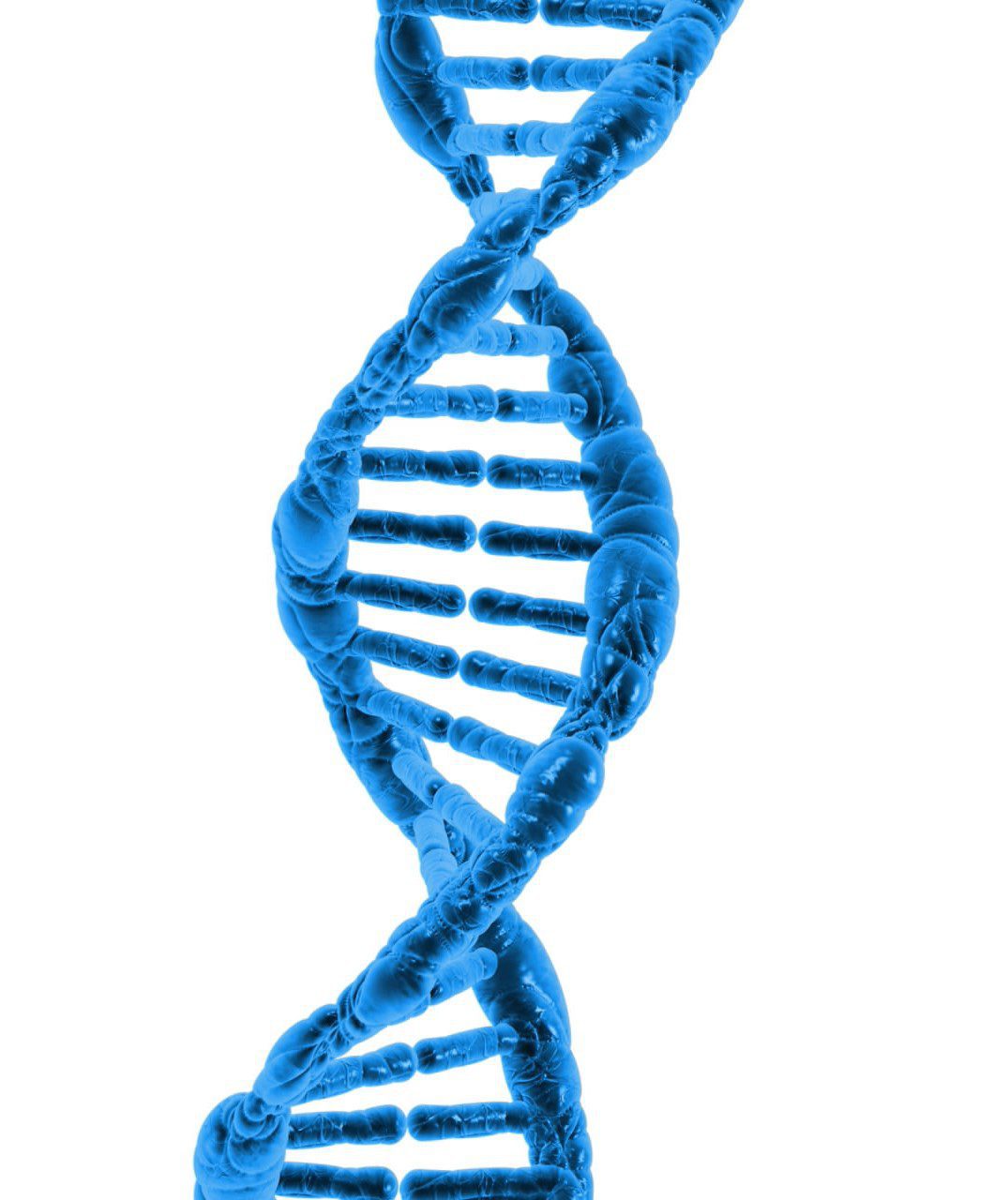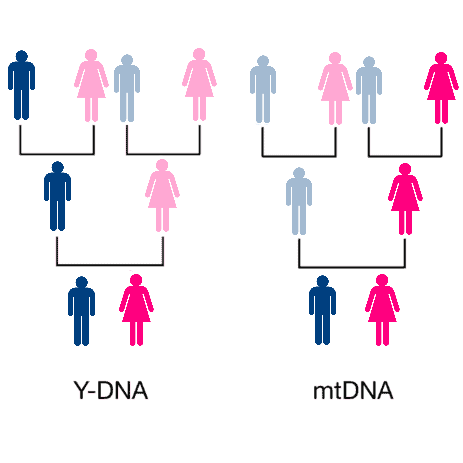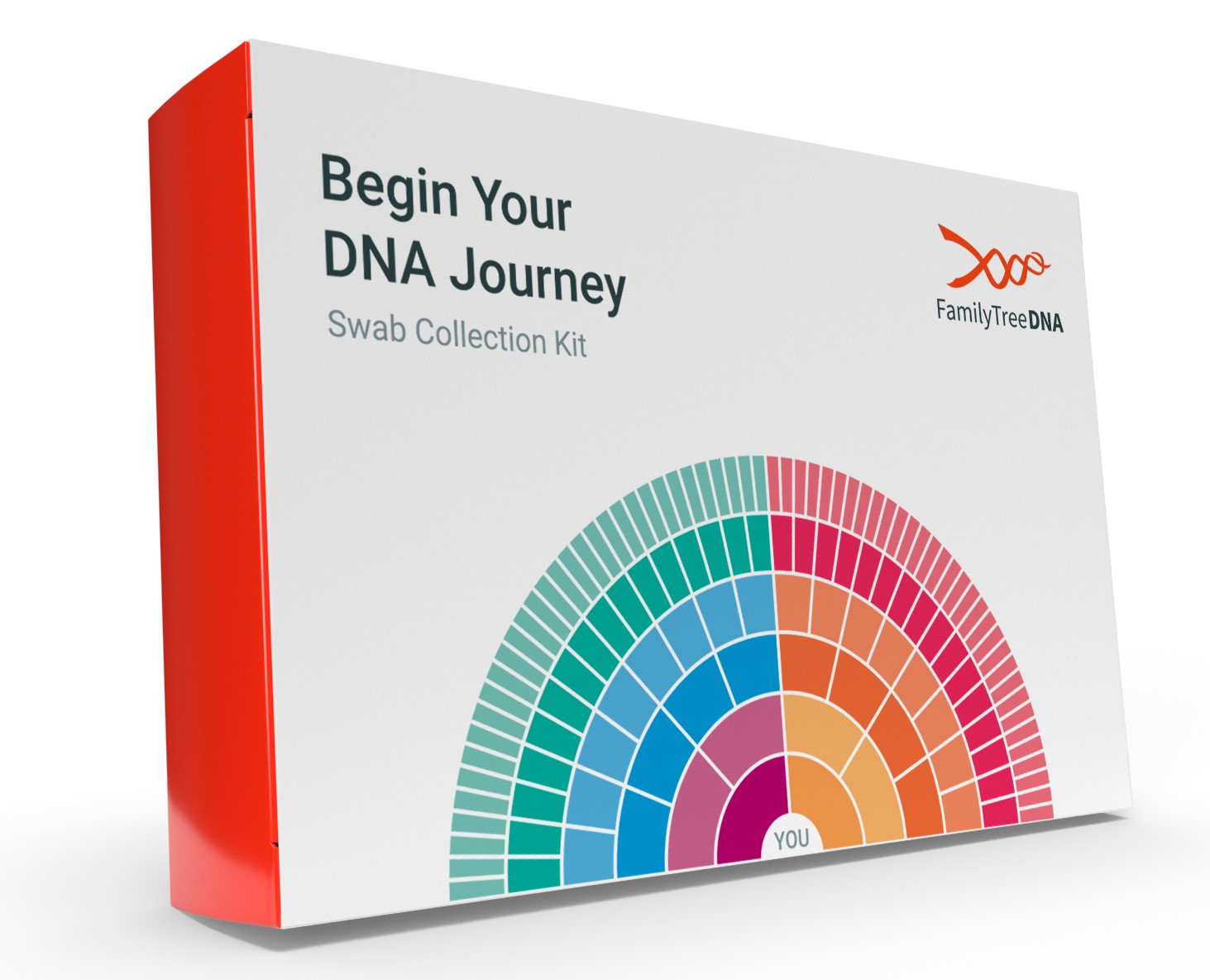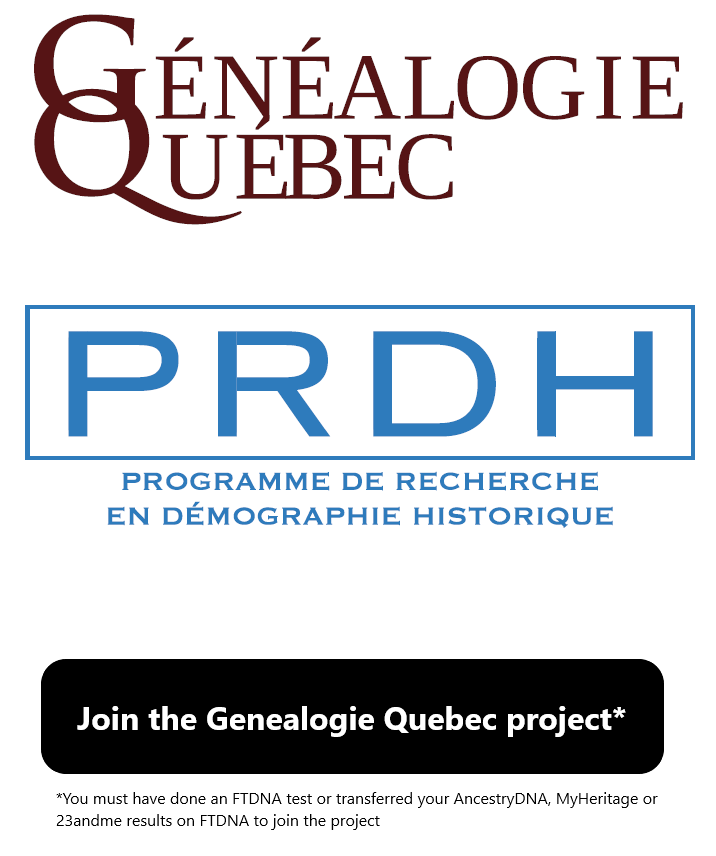Significant Discounts Available on DNA Tests - Get Promo Codes Here!
Discover your origins and verify your ancestry with DNA!
With FamilyTreeDNA's tests and the help of our team, you can now add DNA to your genealogical research arsenal.
Not only will your DNA results tell you more about your family history, they will also allow you to verify, beyond any doubt, the validity of your genealogical research.
How does it work?
FamilyTreeDNA's Y-DNA (males) and mtDNA (males and females) tests allow you to discover and verify your direct paternal and maternal ancestry from the origins of New France.
Your DNA results will allow you to validate your genealogical research through the discovery of your ancestral DNA signatures. With the help of our team, you will be able to verify that your DNA signature matches that of the ancestors at the origins of your lineage. You will have scientific proof that you indeed descend from the ancestors you have identified in your family tree.
FamilyTreeDNA's Y-DNA and mtDNA tests will also reveal the trail of your ancestors in the most distant historical times as well as their migratory paths over the ages.


What is Y-DNA and mtDNA?
Y-DNA is passed down from father to son, much like a traditional family name. Therefore, only males can test their Y-DNA.
As for mtDNA, it is transmitted from mother to child, regardless of gender. Therefore, males and females can both benefit from the mtDNA test.
FamilyTreeDNA offers four different Y-DNA tests for males, but basic Y-37 testing is sufficient to verify your genealogical research.
Contribute to scientific research and get more!
When you purchase a DNA test, FamilyTreeDNA invites you to join the many group projects it hosts. The PRDH and Drouin Institute teams have joined forces with the Généalogie Québec DNA project to offer members of the group tailored support as they navigate through their DNA results. Genetic exploration has enriched the genealogical passion of millions of hobbyists so far — will you be part of it?
By participating in the Généalogie Québec DNA project, you will enable our teams to optimize your test results and establish the DNA signatures of the pioneers of New France by triangulation. You will contribute to validating and correcting the genealogical research work carried out over the past decades, such as the PRDH family reconstructions.
In addition, the Généalogie Québec DNA project's team will be happy to help you understand your tests and their results. Whether in French or in English, our experienced researchers in genetic genealogy will be able to explain the meaning and significance of your results for your genealogical research. They will be able to guide you in the light of your Y-DNA or mtDNA profiles and add valuable information to your personal research.
Order your test right now!
We answer your questions
Have any questions? The Généalogie Québec DNA project's team will be happy to assist you in the purchase and use of your test. Contact us at adn@institutdrouin.com with your questions!
Which test(s) should I purchase?
Y-37, Y-67, Y-111 and Big Y-700 tests
These tests are intended for biological males only. Y-37 is the basic test and is sufficient to verify a paternal ancestry. It provides the reading of 37 markers of the Y chromosome and a patronymic strain will be compared to the million other sequences of 37 numerical values in the FTDNA database.
The Y-67 and Y-111 tests are based on the same principle, but analyze more markers and produce a longer and therefore more complete sequence. The Big Y-700 test includes the results of all other Y tests. Not only does the Big Y-700 track up to 700 markers, it explores a deeper, larger dimension of Y-chromosome DNA than the Y-37, Y-67 and Y-111 tests.
You will always be able to upgrade a test: you can begin with the Y-37 test and then upgrade it without having to send another DNA sample. FTDNA commits to keeping your sample for up to 25 years, unless otherwise specified by you.
mtDNA test
This test is intended for both males and females. It allows you to identify the DNA signature received from the matriarchs - often King's Daughters in French Canada - and to get in contact with individuals who have also inherited it. The analysis of matrilineage highlights the importance of genealogy by women.
If your primary goal is the verification of your genealogical research with DNA evidence, the Y-37 and mtDNA (mtFullSequence or FMS) tests are recommended. Don't be surprised, however, if you end up wanting to push the exploration of your DNA further. The matches found by DNA analysis lead many to upgrade to the Big Y-700 test, which allows the identification of genealogical strains in France itself.
How DNA is used to verify and confirm documentary genealogical research
When you trace your ancestry using historical records records, you are at the mercy of the information they contain. Although the vast majority of these documents are reliable, they sometimes do contain errors.
For example, the priest recording the baptism of a newborn had to trust the word of the child's parents. DNA analysis had allowed us to prove, in several cases, that a child did not belong to the couple to which it was attributed in the baptism record. Whether the cause was infidelity, a mistake by the priest, or a hidden adoption, genetics is the only way to spot it.
The Genealogie Québec DNA Project database contains the DNA signature of French-Canadian pioneers, obtained by triangulation. It is by comparing your FamilyTreeDNA test results to the information contained in this database that we can confirm that you are indeed descended from the ancestor identified in your documentary research.
To illustrate the process, we will use the FamilyTreeDNA test results of Richard Côté (fictitious name) to compare them to the DNA signature of Jean Côté, the first member of the Côté family to set foot in New France. Through his documentary genealogical research, Richard Côté was able to trace his patrilineal lineage to Jean Côté using the parish registers of Quebec. He now wants to validate his research, and make sure he is indeed descended from Jean Côté.
Here are Richard Côté's test results:

And here is Jean Côté's DNA signature found in the Genealogie Quebec DNA project database:
Matching DNA signatures is done using two types data. First, the signature belongs to a "haplogroup", which will be J-M172 for all descendants of Jean Côté. The DNA signature is then detailed by a series of numbers “12, 23, 16, 10…”. That sequence is specific to a family, in this case the Coté. It's like a winning number in the genealogy lottery!
Since Richard Côté's data corresponds with that of the other Coté in the database, we know beyond any doubt that he is, like them, a descendant of Jean Côté. If there had been no correspondence between the data, we would've had to conclude that an accident occurred in the paternal ancestry of Richard Côté. A comparison with other lines will then make it possible to identify the generation of this accident.
What is the relevance of a "haplogroup" in genealogy?
French Canadians descend from approximately 5,000 men and 1,500 women who established themselves in New France. Each of these individuals carried a DNA signature which was specific to them and was transmitted to their descendants. These DNA signatures belong to "haplogroups" which group individuals with the same biological characteristics, a bit like blood groups. Each patrilineage and matrilineage retains the mark of its evolution over centuries and millennia. DNA tests will identify haplogroups that will distinguish DNA strains from one another. These haplogroups are inherited from distant patrilineal and matrilineal ancestors and it is up to your family to discover theirs.
FamilyTreeDNA Privacy Statement
FamilyTreeDNA and its independent group projects, such as the Généalogie Québec DNA Project, work with strict privacy protections. You can learn more about FamilyTreeDNA's privacy policies here.
Is the price the same whether I order with you or from FTDNA directly?
The price you pay for a test is the same whether you order it directly from the FTDNA website or in through our page. However, when you order with us, using the buttons on this page, a small percentage of the sale price is returned to us, which we reinvest in the Genealogie Québec DNA project.


